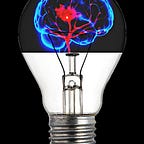Artificial Intelligence (AI) is revolutionizing many aspects of our lives, and the field of education is no exception. The increasing availability of large amounts of data, combined with advances in machine learning and other AI techniques, is transforming the way we teach and learn. In this article, we will explore how AI will impact education in the years to come, and examine some of the opportunities and challenges it presents.
Personalized Learning
One of the most significant impacts of AI on education is in the area of personalized learning. Machine learning algorithms can analyze student data to identify learning patterns and preferences, and provide customized learning experiences tailored to each student’s individual needs. For example, AI can help teachers identify when a student is struggling with a particular subject or concept, and provide targeted feedback or additional resources to help them understand it better. This can lead to more effective learning and better outcomes for students.
Improved Teaching
Another area where AI can have a significant impact on education is in teaching. By providing real-time data and insights, AI can help teachers make better-informed decisions about teaching strategies and curriculum design. For example, machine learning algorithms can analyze student performance data to identify which teaching methods are most effective for different students or groups of students. This can help teachers optimize their teaching strategies and improve student outcomes.
Automated Grading
AI can also have a significant impact on grading and assessment in education. By automating the grading process, machine learning algorithms can save teachers time and effort, and provide faster and more accurate feedback to students. Additionally, AI can be used to identify patterns in student performance data, which can help teachers identify areas where students are struggling and adjust their teaching strategies accordingly.
Challenges and Risks
While AI presents many opportunities for education, it also presents several challenges and risks. One of the biggest challenges is the need for high-quality data. AI algorithms require large, diverse datasets to be effective, which can be difficult to obtain in some cases. Additionally, there are concerns about privacy when using AI in education. Finally, there is the potential for unintended consequences when using AI to inform teaching and learning decisions.
Job Displacement
Another potential risk of AI in education is job displacement. As AI becomes more advanced and more widely adopted, it has the potential to automate many tasks traditionally performed by teachers and other education professionals. This could have significant implications for the education workforce, and policymakers will need to consider ways to address these challenges.
Conclusion
AI has the potential to transform the field of education by providing new insights and tools for personalized learning, teaching, and assessment. However, it also presents several challenges and risks that need to be addressed. By understanding these opportunities and challenges, educators and policymakers can work together to ensure that the benefits of AI are maximized while minimizing its risks. Ultimately, the impact of AI on education will depend on how it is used and the policies that are put in place to guide its development and deployment.
